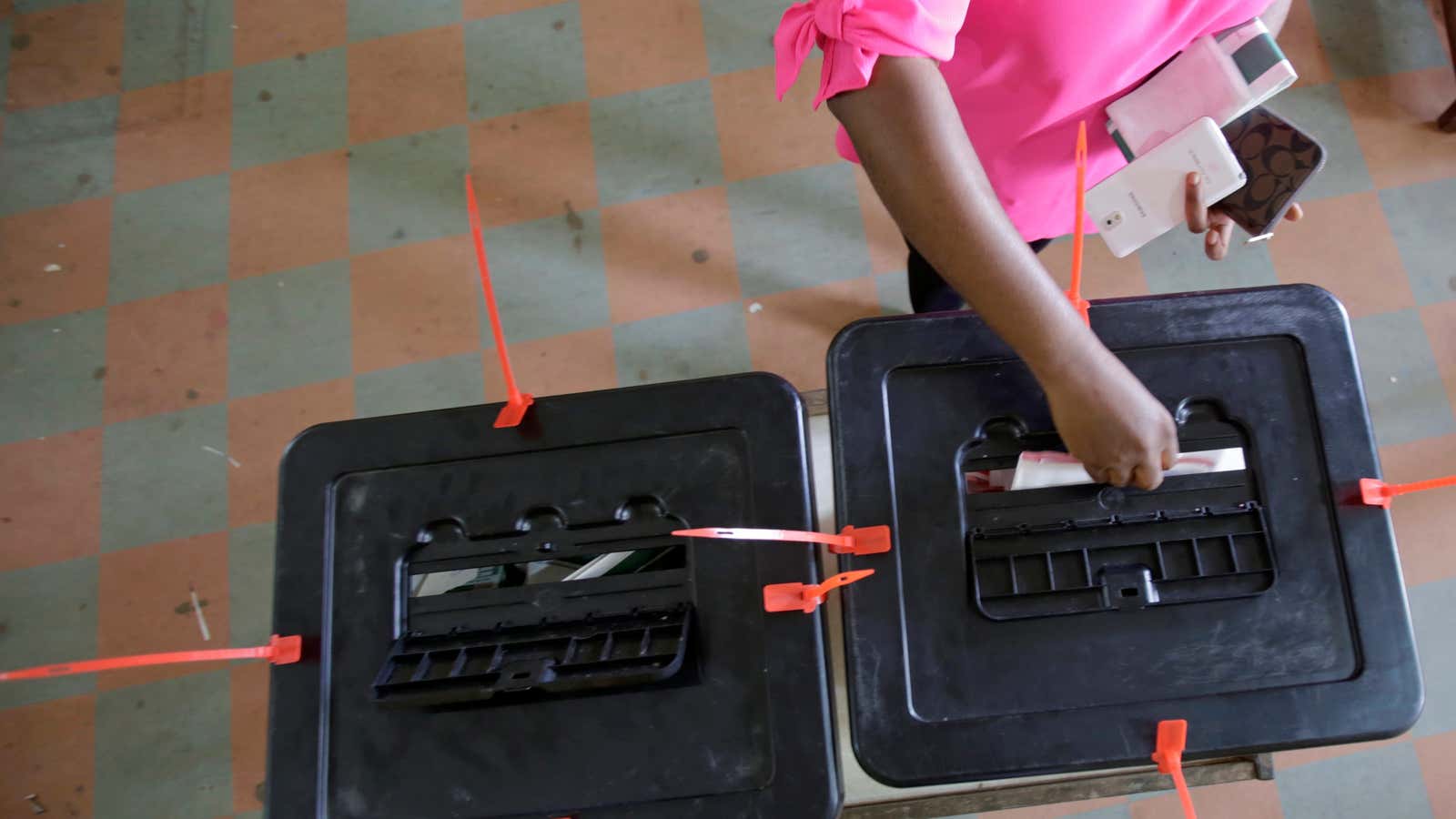Former soccer star George Weah took an early lead in Liberia’s poll, putting him ahead of his main rival, vice president Joseph Boakai. According to preliminary results released by the electoral commission, Weah was leading in most of the 15 counties, even though that represented a small sample of the total votes.
If neither candidate garners more than 50% of the total vote, then a second round runoff will take place on Nov. 7. The commission has until Oct. 25 to announce the final results.
On Oct. 10, more than two million voters went to the polls to choose from among 20 candidates to replace Ellen Johnson Sirleaf, Africa’s first democratically elected female president. Only one of the candidates is female. Eighteen different parties were represented alongside two independents.
The election, crucial for Liberia, is the third since a brutal civil war ended in 2003, and would provide the first peaceful transfer of power in 73 years.
Sirleaf is leaving office after completing a two-term mandate of 12 years. During her term, she notably won the Nobel Peace Prize, dealt with the devastating Ebola crisis and took on the taxing effort of rebuilding a country ravaged by war. Liberia still faces major challenges in tackling corruption, providing crucial services like education, health, and infrastructure and struggles to address issues such as female empowerment and youth unemployment.
Even though the electoral commission hasn’t announced a winner, social-media reports claiming a victory for George Weah went viral. Arsene Wenger, manager of the famed UK club Arsenal, who handed Weah his first big break in European football, even congratulated Weah on his “victory.”
Outside Liberia, Weah, 51, is more known for his illustrious soccer career than his politics. In 1995, he famously won the Ballon d’Or and FIFA World Player of the Year awards—the only African to ever do so. Since retiring from soccer in 2003, he’s taken up a career in Liberian politics. In 2005, he lost in a presidential runoff to Sirleaf. He unsuccessfully contested again in the 2011 elections, this time as vice presidential candidate under Winston Tubman. In 2014, he won a Senate seat. Weah say he hopes to build an inclusive government, improve the economy, and support vocational education.
Boakai, Weah’s main rival, can boast far more political experience. Vice president since 2006, he also served as Liberia’s minister of agriculture in the 1980s. Boakai, 73, is running on the incumbent government’s record of improvement in security and economic growth under the Unity party that has been in power since Sirleaf’s victory in 2005.
